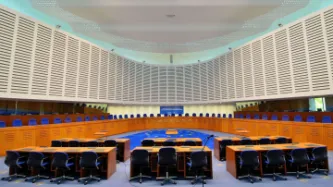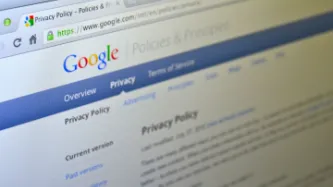Search
Content type: Examples
Uber and Bolt users in South Africa and Nigeria have been booking hoax rides in each other's country and pranking gig workers to express their anger after the beauty pageant contestant Chidimma Adetshina controversially pulled out of the Miss South Africa pageant and then agreed to appear in a similar contest in Nigeria, fuelling tension between the two countries. Bolt has responded by restricting inter-country ride requests and blocked the users in question. Uber says it is investigating.Read…
Content type: Examples
July 2021 saw violent protests that left 72 people dead and 1,300 in prison after former president Jacob Zuma was jailed for failing to appear before a constitutional court’s inquiry into corruption during his time in office. In response, the South African government deployed the military onto the streets in the provinces of Gauteng and Kwazulu Natal, and began monitoring social media platforms and tracking those who “are sharing false information and calling for civil disobedience”. President…
Content type: Examples
The South African government urged social media platforms to trace and remove posts that incite violence, share false information, and call for civil disobedience after a July 2021 series of spiralling protests sparked by the jailing of former president Jacob Zuka. A number of other African countries such as eSwatini, Senegal, Nigeria, Uganda, Niger, and the DRC have also been increasingly using tracking software, internet shutdowns, and social media monitoring during protests and elections.…
Content type: Long Read
On 25 May 2021, the European Court of Human Rights issued its judgment in Big Brother Watch & Others v. the UK. Below, we answer some of the main questions relating to the case.
After our initial reaction, below we answer some of the main questions relating to the case.
NOTE: This post reflects our initial reaction to the judgment and may be updated.
What’s the ruling all about?
In a nutshell, one of the world’s most important courts, the Grand Chamber of the European Court of Human…
Content type: Examples
As Europeans went back to work and social spaces in early summer 2020, they discovered that these had been newly equipped with a variety of technologies that brought surveillance with them as the price of preventing a resurgence of the coronavirus. Among the tools being adopted: a Romware Covid Radius bracelet, which beeps whenever two workers get too close to each other; laser technology to ensure social distancing in shopping malls; mask detection technology, facial recognition to ensure…
Content type: News & Analysis
Today, the Constitutional Court of South Africa in a historic judgment declared that bulk interception by the South African National Communications Centre is unlawful and invalid.
The judgment is a confirmation of the High Court of South Africa in Pretoria’s powerful rejection of years of secret and unchecked surveillance by South African authorities against millions of people - irrespective of whether they reside in South Africa.
The case was brought by two applicants, the amaBhungane Centre…
Content type: Examples
The government has revealed that illegal immigrants will also benefit from the rollout of the Covid-19 vaccine.
National Treasury director-general Dondo Mogajane said this during a virtual meeting between his department and the SA National Editors Forum on Wednesday afternoon.
“We are in SA and we have many millions of undocumented people and [we can't say they shouldn't receive the vaccine as they are undocumented]. The demand for the vaccine is going to be exceeded, and we are not going to…
Content type: Examples
When Google and Apple announced their joint platform for contact tracing, the companies said the system would not track users’ locations. By mid-July, the resulting apps had been downloaded more than 20 million times in companies such as Germany and Switzerland. However, in order for Bluetooth, which the app requires, to work on Android phones, users must enable location services, with the result that Google may be able to track their location. Governments and health officials in Germany,…
Content type: Examples
The Israeli digital ID card creator Pangea EVP has developed an immunity passport intended to give individuals access to public spaces, including airports. The passport will include a photo of the holder, a digital signature, a hologram, and a chip. When they want to fly, holders will insert flight and medical details into a web portal; the system will then advise the health protocol they need to follow. If they test negative for COVID-19, the laboratory will issue a smart card that…
Content type: Examples
Many of the technologies used to combat the coronavirus pandemic, including monitoring and analysing social media posts, telecommunications location data, and the use of sensors, were first tested on refugees during the 2015 crisis and are now being repurposed in the name of public health. In 2019, the European border security agency Frontex published a €400,000 tender for social media analysis services hoping to better predict future migration patterns; the tender was withdrawn after an…
Content type: Examples
Our partners from Right to Know campaign in South Africa produced this infosheet to simplify what the South African government has committed to doing in ensuring that the use of surveillance does not impact negatively on people’s rights to privacy and that necessary data protections are taken into cognizance, whilst the necessary safeguards are put in place to protect citizens during this period of COVID 19.
Link: https://www.r2k.org.za/2020/04/14/covid-19-surveillance-infosheet/
Content type: Examples
Researchers at the University of Cape Town are developing the smartphone app COVI-ID to help the South African government track people who may not know they have contracted COVID-19, as well as people who have come into contact with those who have tested positive. The app will use Bluetooth and geolocation (via GPS, cellphone tower signals, and wifi) to collect the personal locations of users along with their infection status and store the information on the device using self-sovereign identity…
Content type: Examples
Liechtenstein is the first European country to use biometric electronic bracelets to implement a real time coronavirus tracking programme. The bracelet, which sends skin temperature, breathing, and pulse, among other metrics, for analysis in a Swiss lab, is being offered to 5% of the population. The country, which acted early to prevent the epidemic, plans to roll the bracelets out to the entire population by autumn.
Source: https://inews.co.uk/news/health/coronavirus-testing-latest-…
Content type: Examples
The regulations brought in to curb the spread of COVID-19 in South Africa included directions published by the minister of communications and digital technologies that critics claimed violated the country's constitution. On the plus side, the regulations ordered service providers to ensure continued provision of internet and telecommunications services, and enabled temporary licensing of spectrum bands, which could increase internet capacity. However, the regulations also make publishing a…
Content type: Examples
The government has issued a substantial rewrite of a controversial proposal to track people using their phones and other devices in the bid to contain Covid-19. AmaBhungane, an investigative journalism newsroom, said the first “directions” – issued last week by the minister of communications – raised "serious concerns for their vagueness and lack of privacy protections”. The new regulations provide more judicial oversight, restrict the purpose to contact tracing, and aim to ensure that…
Content type: Examples
GDPRHub is collecting a list of projects around the world that are using personal data to combat the novel coronavirus. The list is divided into categories such as decentralised contact tracing apps and frameworks; centralised contact tracing systems; lockdown enforcement; self-assessment apps; mapping projects; and statistical analysis. The site also tracks COVID-19-releated data protection issues.
Source: https://gdprhub.eu/index.php?title=Projects_using_personal_data_to_combat_SARS-…
Content type: Examples
The South African National Institute for Communicable Diseases and the Council for Scientific and Industrial Research will partner with Telkom and Samsung to create a track and trace system specifically for the South African context, which includes high levels of economic inequality, poverty, and overcrowding. The system will collate data sources such as GIS in order to track those who may be infected and those whom they may expose to the virus. In some communities, the Department of Health…
Content type: Examples
Led by Germany's Fraunhofer Heinrich Hertz Institute for Telecoms, technologists and scientists from at least eight countries, are working on a proximity-based contact tracing technology that complies with GDPR. The Pan-European Privacy-Preserving Proximity Tracing project (PEPP-PT) is intended to leverage smartphones to help disrupt the spread of infection by notifying individuals when their smartphones are near enough to to that of another person to carry out a Bluetooth handshake - thereby…
Content type: Examples
South Africa's Communications Minister, Stella Ndabeni-Abrahams, has stated that telecommunications operators in the country have agreed to provide location data to identify how many people have been infected in a particular area. The Government has broad powers under a national state of disaster.
Writer: Philip de Wet
Publication: Business Insider
Content type: News & Analysis
Today, the High Court of South Africa in Pretoria in a historic decision declared that bulk interception by the South African National Communications Centre is unlawful and invalid.
The judgment is a powerful rejection of years of secret and unchecked surveillance by South African authorities against millions of people - irrespective of whether they reside in South Africa.
The case was brought by two applicants, the amaBhungane Centre for Investigative Journalism and journalist Stephen…
Content type: News & Analysis
Today, Privacy International, along with nine other NGOs including Liberty and Amnesty International, attended a hearing before the Grand Chamber of the European Court of Human Rights (ECtHR) to revisit the Court's first ruling on our case challenging UK mass surveillance and intelligence sharing. In September 2018, the First Section of the ECtHR ruled that the UK government's mass interception program violates the rights to privacy and freedom of expression. Notwithstanding the positve aspects…
Content type: Examples
The State is not always the only actor involved in the surveillance of benefits claimants. Often those practices are encouraged, facilitated or conducted by private companies. South Africa for instance mandated MasterCard to help distribute benefits through biometric debit cards.
https://www.finextra.com/newsarticle/23941/south-africa-enlists-mastercard-to-distribute-welfare-through-biometric-debit-cards
Publication: FinExtra
Content type: News & Analysis
According to the International Organization for Migration, an estimated 258 million people are international migrants – that is, someone who changes their country of usual residence, That’s one in every 30 people on earth.
These unprecedented movements levels show no sign of slowing down. It is predicted that by 2050, there will be 450 million migrants across the world.
Nowadays, it is politically acceptable to demonise migrants, and countless leaders have spewed divisive and xenophobic…
Content type: Long Read
Cellebrite, a surveillance firm marketing itself as the “global leader in digital intelligence”, is marketing its digital extraction devices at a new target: authorities interrogating people seeking asylum.
Israel-based Cellebrite, a subsidiary of Japan’s Sun Corporation, markets forensic tools which empower authorities to bypass passwords on digital devices, allowing them to download, analyse, and visualise data.
Its products are in wide use across the world: a 2019 marketing…
Content type: Advocacy
UPDATE 13 February: Facebook announced that it would open up its Ad Archive API next month. Read Mozilla's statement about the response here.
On 11 February 2019, Privacy International joined Mozilla and 36 organisations in an open letter to Facebook call on Facebook to make good on its commitments to provide more transparency around political advertising ahead of the 2019 EU Parliamentary Elections.
Specifically, our open letter urges Facebook to:
Roll out a functional, open Ad…
Content type: Long Read
The Privacy International Network is celebrating Data Privacy Week, where we’ll be talking about how trends in surveillance and data exploitation are increasingly affecting our right to privacy. Join the conversation on Twitter using #dataprivacyweek.
In the era of smart cities, the gap between the internet and the so-called physical world is closing. Gone are the days, when the internet was limited to your activities behind a desktop screen, when nobody knew you were a dog.
Today, the…
Content type: State of Privacy
Table of contents
Introduction
Right to Privacy
Communication Surveillance
Data Protection
Identification Schemes
Policies and Sectoral Initiatives
Introduction
Acknowledgment
The State of Privacy in South Africa is the result of an ongoing collaboration by Privacy International and the Right2Know coalition.
Key Privacy Facts
1. Constitutional privacy protections: Section 14 of the Constitution of the Republic of South Africa protects the right to privacy.
2. Data protection laws…
Content type: News & Analysis
Privacy International welcomes the judgment of the European Court of Human Rights in Catt v the United Kingdom.The Court found that the UK violated the right to privacy (Article 8 of the European Convention on Human Rights) of Mr John Catt, a peace movement activist, who despite having never being convicted of any offence, had his name and other personal data included in a police database known as the “Extremism Database”. The Court found problematic "the variety of definitions of…
Content type: News & Analysis
On 22 January 2019 Google updated its Terms of Service and Privacy Policy for Europe.
The message is quite reassuring:
“Nothing about your experience in Google services will change. And nothing is changing in terms of your privacy settings, the way your data is processed, nor the purposes of its processing”.
Then it says: “However, if you don’t want to accept these changes in our terms and Privacy Policy, you can choose to stop using the applicable services.”
Simple. If you don’t like it,…
Content type: News & Analysis
We found this image here.
In order for GDPR to be effective at protecting people's data, it must be implemented and enforced. Therefore, we are pleased to see that CNIL has taken action and issued Google a fine of €50 million based on complaints by NOYB and La Quadrature Du Net in May 2018. Despite numerous statements by Google that it takes the protection of people's data seriously, the decision demonstrates that they have a long way to go and that regulators will take action to hold…











